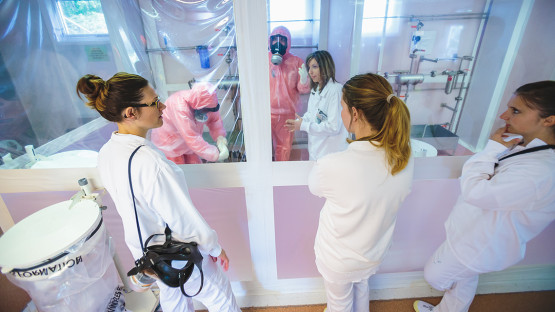Hundreds of students and professionals from around the world will receive education and training in various nuclear fields thanks to an agreement the IAEA and France’s School for Energy and Health Technology (INSTN) signed this week. The training programs, including both in-person and online learning sessions, will take place over the next four years. “INSTN is a well-recognized institution which has assisted the IAEA by providing comprehensive academic education and hands-on training to professionals in nuclear medicine, radiopharmaceutical production and industrial radiation applications, especially in countries across Africa,” said Sasha Damjanac, Head of the IAEA Research Contracts Administration Section.
Based on the new agreement the two organizations signed on 3 February, INSTN, which is part of the French Alternative Energies and Atomic Energy Commission (CEA), will extend the support to the IAEA and its Member States to nuclear energy and nuclear safety and security. Specific areas of collaboration will include:
- nuclear knowledge management;
- nuclear energy management for nuclear applications;
- capacity building based on nuclear power plant simulators and research reactors;
- advanced nuclear energy systems;
- response to nuclear security events involving Material Out of Regulatory Control (MORC).
INSTN will also fund fellowships for female students, which will cover up to two years of graduate education in nuclear science and technology at INSTN.
“Our new designation and the associated work plans will allow the IAEA and its Member States to benefit from INSTN’s and CEA’s expertise to build the skills of the current and future nuclear workforce. We will now be able to share our know-how in areas such as knowledge management, digital transformation of education and training, heritage conservation, and response to nuclear security events,” said Eric Gadet, INSTN’s Director.
Collaborating Centres work with the IAEA in specific technical areas, sharing knowledge and resources in the peaceful uses of nuclear technology. Of the 46 Collaborating Centres offering research, development and training, most work with the IAEA in a single thematic area, while a few engage in two areas of work. INSTN is the second Collaborating Centre after Russia’s ROSATOM to support the IAEA’s activities in three programmatic areas.






